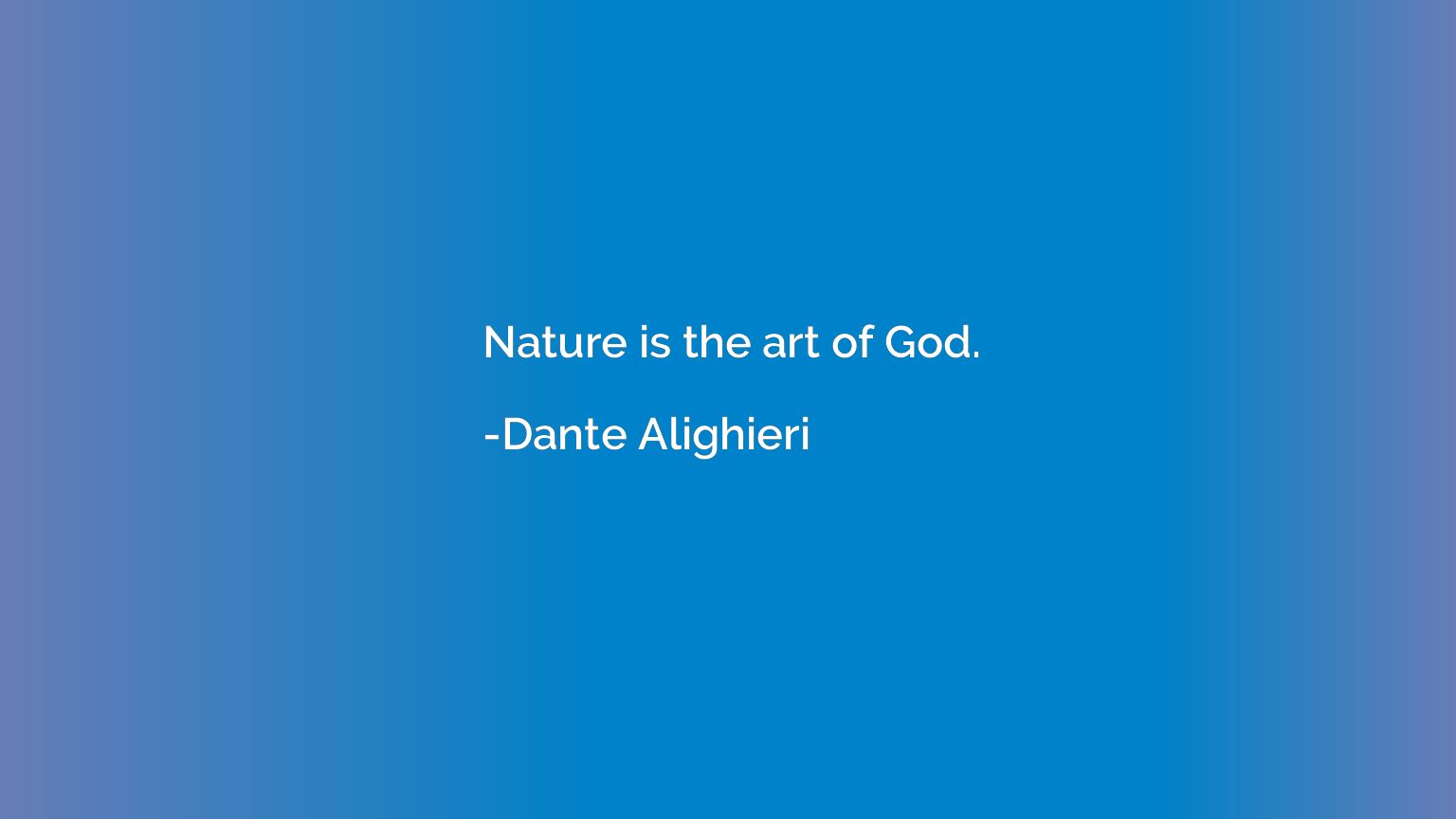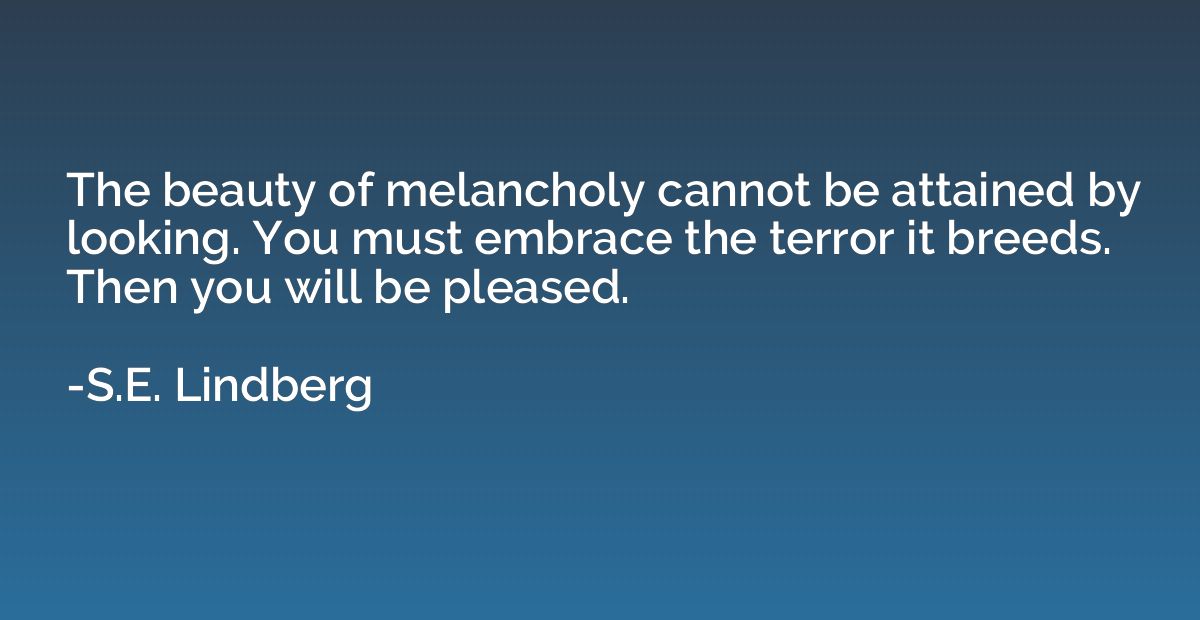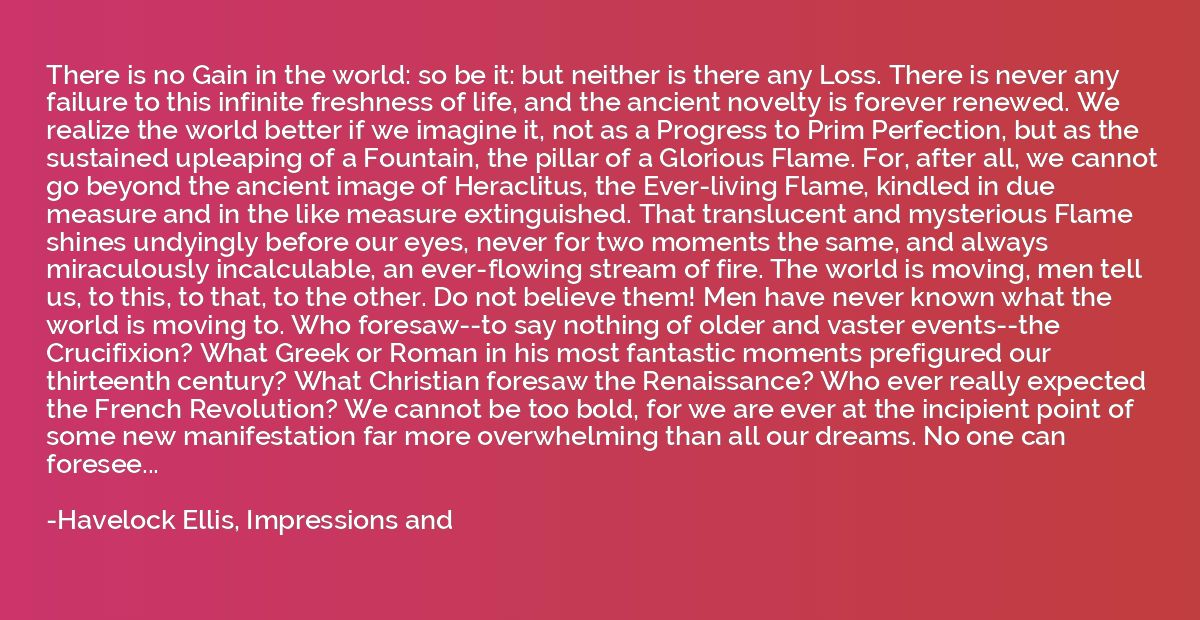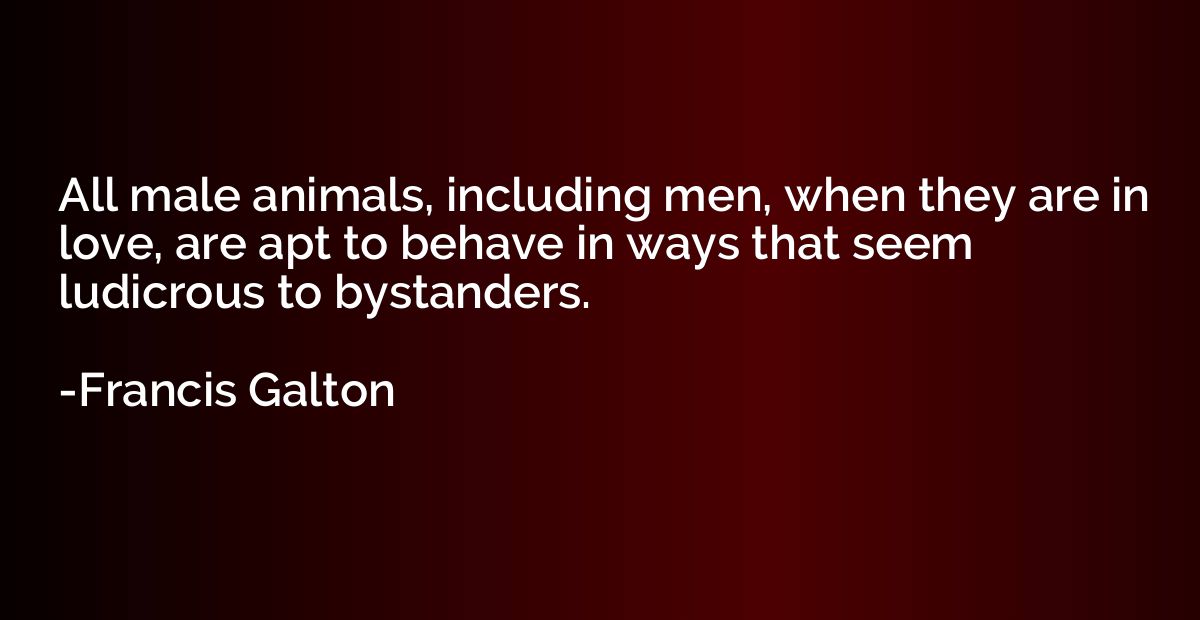Summary
This quote suggests that the beauty and wonders found in nature are a reflection of God's artistic creation. It implies that nature, with all its intricacies and harmonies, is a testament to the divine creativity and design. The quote implies that by appreciating and marveling at the natural world, we can catch a glimpse of the splendor and artistry of the higher power who created it.















